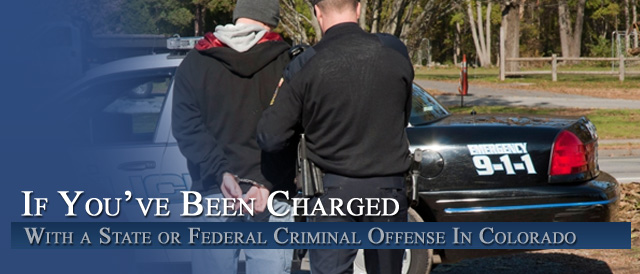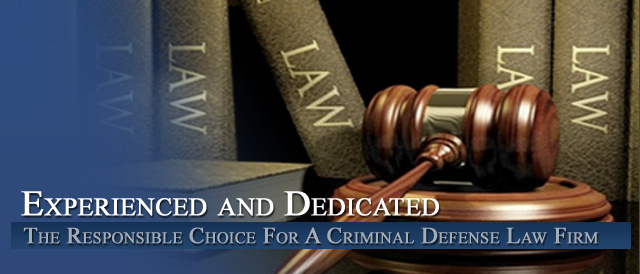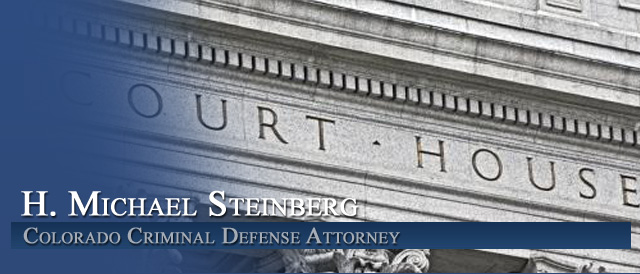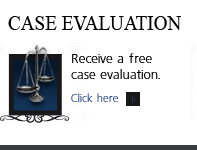




Driving Under the Influence [DUI]
Alcohol and Driving
Drinking and driving is one of the greatest problems causing highway crashes. Every year, tens of thousands of people are killed in alcohol-related traffic crashes. Drinking drivers are more likely than other drivers to take excessive risks such as speeding or turning abruptly. The drinking driver is also more likely to have slowed reaction times and may not be able to react quickly enough to avoid a collision.
Alcohol is a depressant drug that affects the central nervous system, which affects the brain. It slows reflexes and reaction times while reducing the ability to make split-second decisions necessary to safely operate a motor vehicle. As the amount of alcohol in your body increases, your judgment worsens and your skills decrease.
The amount of alcohol absorbed in your blood stream is what causes you to feel the effects of drinking. This is called Blood Alcohol Concentration (BAC), which is determined by a chemical test, usually of blood or breath.
The driver with a BAC between 0.05 and 0.09 percent is presumed to be driving while his ability to drive is impaired (often referred to as “driving while ability impaired” or DWAI). If a driver’s BAC is 0.10 percent or greater, this may be due to a combination of alcohol and any other drugs. For example, one drink, when you are also taking an allergy or cold medication, could have the same effect as several drinks.
Illegal drugs such as marijuana, cocaine, LSD and heroin also affect your reflexes, judgment and alertness along with their many other dangerous side effects. These drugs can give a person a false sense of alertness and self confidence or make a person drowsy and unable to react to simple situations.
Express Consent Law (C.R.S. 42-4-1301)
The express consent law means that when you operate a motor vehicle within the state, you have already agreed to take a chemical test of your blood, breath or urine to determine the alcohol and/or drug content of your blood. The law is designed specifically to quickly remove the drinking or drugged driver from the roads. If a law enforcement officer suspects that you are driving under the influence or while your ability is impaired by alcohol and/or drugs, he can require that you take a chemical test of your blood, breath or urine. If you refuse to take the test or don’t cooperate with the testing procedure, your license will be revoked for a period of one year. If other suspensions or revocations come about from this same incident, they will be added onto the end of the revocation (consecutively).
Because driving under the influence is so dangerous, the penalties for alcohol or drug-related violations are very tough, and DUI enforcement efforts by the police are a top priority that can include jail, fines, and suspension of your driving privileges. Colorado law does not allow you to “plea bargain” your way out of an alcohol or drug-related driving offense.
The only sure way to avoid the consequences is not to use alcohol or drugs at all when you will be driving.
Under Age 21
Any driver under the age of 21 who is convicted of DUI or DWAI is subject to a mandatory revocation of their driving privilege for one year.
Zero Tolerance (C.R.S. 42-2-121)
Drivers under the age of 21 with a BAC of .02 but less than .10 are subject to a mandatory revocation of their driving privilege.
Buy and Possess (C.R.S. 42-2-125)
Any person under the age of 21 who buys or possesses liquor (including beer) is subject to mandatory revocation of their driving privilege even if driving is not a factor.
As of 2010 — the laws in Colorado have changed – -here is a summary of the new DUI penalties
The state legislature had this to say about the new, harsher sentencing laws in Colorado:
The Old Colorado DUI Setencing Law:
DWAI – first offense: two to 180 days; all jail time can be suspended.
DUI – first offense: five days to one year; all jail time can be suspended.
DUI or DWAI with Blood Alcohol Content of 0.20 or more: 90 days to one year; all but ten days can be suspended.
DWAI with prior DWAI conviction: 45 days to one year; all but five days can be suspended.
DWAI with prior DUI conviction: 60 days to one year; all but six days can be suspended.
DUI with prior DWAI conviction: 70 days to one year; all but seven days can be suspended.
DUI with prior DUI conviction: 90 days to one year; all but ten days can be suspended
Changes to DUI Laws
Effective July 1, 2010, which apply to offenses committed on or after that date.
The new law provides as follows:
1st DUI: minimum mandatory of 5 days, or 10 days if BAC over 0.20
1st DWAI: minimum mandatory of 2 days, maximum of 180 days
2nd DUI: minimum mandatory of 10 days
3rd DUI: minimum mandatory of 60 consecutive days
Further, the new law provides that anyone with two or more DUIs will be required, in addition to a period of incarceration, to serve a two year probationary sentence. The period of incarceration for multiple offenders can no longer be served on in home detention (ankle monitor).
Work release and straight time are now the only options permitted under the statute
Here is a More Comprehensive Chart of the Changes
2010 Update – New Colorado DUI/DWAI Penalties
Effective July 1, 2010 Governor Bill Ritter recently signed 10 criminal and juvenile justice bills into law. These laws went into effect July 1, 2010. The most notable of these new laws was HB 1347 proposed by Rep. Levy and Sen. Morse.
HB 1347 – Increases penalties for a 2nd offense in a 5 year period and 3rd and subsequent offenses in lifetime. The mandatory for a 2nd offense will be 10 days (straight jail time, no good time and no alternative sentencing programs like EHM/IHD) with work/education release available.
The penalty for 3rd and subsequent offenses will be 60 days (straight jail time, no good time and no alternative sentencing programs like EHM/IHD). There will be increased probation time for repeat offenders. There are provisions for “shock” incarceration for offenders who are not compliant with probation. HB 1347 – Applies only to offenses on or after July 1, 2010.
HB 1347 DUI Bill Summary
- Repeals the penalty section [42-4-1301(7)], and moves it to its own statute, 42-4-1307.
- Defines conviction to include verdict or plea, and DJ&S (Deferred Judgment Sentence) unless successfully completed.
- Determines the penalty based on number of alcohol convictions rather than DUI v. DWAI…
- First Offense Penalties:(meant not to change, but inadvertently – due to a drafting error – there will be some change as noted in italics below):
- DUI
- Jail sentence is 5 days to one year, the minimum is mandatory except as provided in 42-4-1301.3. 42-4-1301.3 (2)(b) did apply to first offenses, but still retains the statutory cite to the old statute, under 42-4-1301(7). The new 42-4-1307 changes 42-4-1301.3(2)(a) apply to all 42-4-1307 violations, including first offenses. The conflict/changes are as follows:
- Immediate sentencing – 42-4-1301.3 (2) requires a presentence evaluation, but 42-4-1301.3 (1) does allow for immediate sentencing on a first offense, as does 42-4-1307.
- Suspension of mandatory sentences on first offenses – should still be allowed as it was (and maybe still is) under 42-4-1301.3(2)(b) as that applied to first offenses; and the new 42-4-1307(3)(I) and (4)(I) allow suspension as under 42-4-1301.3. It would be nonsensical to have a statute allowing for suspension of the mandatory sentence while referring to a statute that does not.
- Monitored abstention from the use of alcohol for one year. This will apply to first offenses for DUI and DWAI. (This change was definitely NOT intended and it is not clear how this will play out in practice. Prosecutors have been told that this was not the intent of the Commission but an error by the drafter. It is not clear what each will do with this. Plan is to change in 2011 session.)
- $600.00 – $1,000.00 fine.
- 48 – 96 hours of mandatory public service
- 2 years of discretionary probation that can include other conditions.
- Jail sentence is 5 days to one year, the minimum is mandatory except as provided in 42-4-1301.3. 42-4-1301.3 (2)(b) did apply to first offenses, but still retains the statutory cite to the old statute, under 42-4-1301(7). The new 42-4-1307 changes 42-4-1301.3(2)(a) apply to all 42-4-1307 violations, including first offenses. The conflict/changes are as follows:
- DUI
-
- DWAI
- Jail sentence is 2 days to 180 days, the minimum is mandatory except as provided in 42-4-1301.3, with the same caveats as noted above in DUI.
- $200.00 – $500.00 fine
- 24 – 48 hours of mandatory public service
- 2 years of discretionary probation that can include other conditions.
- DWAI
-
- If a first time offender has a BAC of above .20 the Court must impose a 10 day jail sentence regardless of whether the conviction is for DUI, DUI per se, or DWAI. The 10 days may be served in sentencing alternative programs under 18-1.3-106 (i.e. work release, home detention, etc.) Convictions of DUI, DUI per se, or DWAI at .20 and above also currently have a fine in the Court’s discretion of $1,000 – $1,500, and 60 – 120 hours of useful public service, with this new penalty section the fine and community service are the same as other first offenses.
- Additional Penalties for all offenses:
- Required:
- Crime Victim Compensation Fund Costs pursuant to 24-4.1-119(c).
- Persistent drunk driver fund surcharge ($100 – $500, unless indigent).
- $20.00 to the traumatic brain injury trust fund.
- Rural Substance Abuse Program Fund ($1 – $20, unless indigent).
- Restitution.
- Costs of pre and post sentence alcohol and drug evaluation and supervision services.
- Up to $120 for community service.
- Discretionary:
- Victim impact panel.
- Required:
- Multiple Offenses
- Prior offense means convicted of: DUI, DUI per se, DWAI, or Habitual User and at the time of sentencing you have one or more prior convictions for:
- DUI,
- DUI per se,
- DWAI,
- Habitual User,
- Vehicular Homicide (based on under the influence),
- Vehicular Assault (based on under the influence),
- HTO (as a felony based on DUI or DWAI), or
- DUR alcohol/drug
- Prior offense means convicted of: DUI, DUI per se, DWAI, or Habitual User and at the time of sentencing you have one or more prior convictions for:
-
- Prior convictions can be under the laws of any State, the United States, or any territory of the United States.
- Prima facie proof of a prior conviction:
- Prosecution and defense stipulate
- Driving record from DOR from Colorado or any state
- Authenticated copy of conviction from court.
- No requirement to plead or prove the previous conviction at trial
- No immediate sentencing in cases with priors if the prosecution and defense have not stipulated to the priors, or if the prosecutions requests time to get a driving record or court record.
- Prima facie proof of a prior conviction:
- Prior convictions can be under the laws of any State, the United States, or any territory of the United States.
-
- Penalties for multiple offenses:
- Jail as Punishment – Second Offenses:
- If the second offense is within5 years of the first:
- Jail sentence is 10 days to 1 year jail – for the minimum mandatory time:
- Days served must be consecutive
- No earned time
- No good time
- No trusty prisoner status
- Shall receive credit for time served prior to conviction
- Sentencing alternative programs pursuant to 18-1.3-106, such as in-home detention and general work release – not allowed for the minimum mandatory sentence, but are allowed for additional time.
- For the minimum mandatory sentence, work release is allowed only:
- If the County has such program available
- To continue employment held at the time of sentencing
- To continue attendance at an educational institution at which the person was enrolled at the time of sentencing.
- Participation in Level II treatment program.
- Jail sentence is 10 days to 1 year jail – for the minimum mandatory time:
- If the second offense is outside of 5 years of the first:
- Jail sentence is 10 days to 1 year jail – for the minimum mandatory time:
- Days served must be consecutive
- No earned time
- No good time
- No trusty prisoner status
- Shall receive credit for time served prior to conviction
- Sentencing alternative programs pursuant to 18-1.3-106, such as general work release and in-home detention – are allowed for the entire sentence.
- Jail sentence is 10 days to 1 year jail – for the minimum mandatory time:
- If the second offense is within5 years of the first:
- Jail as Punishment – Second Offenses:
- Penalties for multiple offenses:
-
-
- Other sentencing conditions for all second and subsequent offenses:
- $600 – $1,000 fine
- 48 – 120 hours public service
- 2 years mandatory probation:
- Required:
- Starting at the commencement of the sentence
- Suspended 1 year of jail as a condition of probation.
- No credit is to be given for any period of imprisonment given as punishment.
- Level II alcohol treatment program
- Discretionary with court:
- Commencement of treatment during imprisonment.
- Require defendant to report to court at any time.
- Require ignition interlock.
- Require continuous alcohol monitoring devices.
- Additional conditions as permitted by law.
- An additional 2 years of probation as needed, but only if two or more convictions of DUI, DUI per se, DWAI, Habitual User, or UDD.
- Violations of probation:
- Court may impose all or part of the suspended sentence (up to a year) if the defendant violates any condition of probation.
- Probation continues while serving jail as a sanction.
- Imprisonment sanction to be used in a manner to promote compliance with probation.
- Prosecution, defendant, or probation officer can apply for early termination of probation, which may be granted only upon a finding that:
- Successful completion of Level II, and
- Otherwise complied with probation, and
- Early termination will not endanger public safety.
- Required:
- Courts are encouraged to use interlock devices as a condition of bond, probation, or any sentence to a jail alternative.
- Other sentencing conditions for all second and subsequent offenses:
-
- Additional Penalties for all offenses:
- Required:
- Crime Victim Compensation Fund Costs pursuant to 24-4.1-119(c).
- Persistent drunk driver fund surcharge ($100 – $500, unless indigent).
- $20.00 to the traumatic brain injury trust fund.
- Rural Substance Abuse Program Fund ($1 – $20, unless indigent).
- Restitution.
- Costs of pre and post sentence alcohol and drug evaluation and supervision services.
- Up to $120 for community service.
- Discretionary:
- Victim impact panel.
- Required:
-
- Jail as Punishment – Third and Subsequent Offenses:
- Jail sentence is 60 days to 1 year jail – for the minimum mandatory time:
- Days served must be consecutive
- No earned time
- No good time
- No trusty prisoner status
- Shall receive credit for time served prior to conviction
- Sentencing alternative programs pursuant to 18-1.3-106, such as in-home detention and general work release – not allowed for the minimum mandatory sentence, but are allowed for additional time.
- For the minimum mandatory sentence, work release is allowed only:
- If the County has such program available
- To continue employment held at the time of sentencing
- To continue attendance at an educational institution at which the person was enrolled at the time of sentencing.
- Participation in Level II treatment program.
- Jail sentence is 60 days to 1 year jail – for the minimum mandatory time:
- Jail as Punishment – Third and Subsequent Offenses:
-
-
- Day for day credit pursuant to 18-1.3-106(12) is not allowed for any sentence to a county jail alternative program, such as home detention or work release (for second and subsequent offenses only).
-
-
-
- Other sentencing conditions for all second and subsequent offenses:
- $600 – $1,000 fine
- 48 – 120 hours public service
- 2 years mandatory probation:
- Required:
- Starting at the commencement of the sentence
- Suspended 1 year of jail as a condition of probation.
- No credit is to be given for any period of imprisonment given as punishment.
- Level II alcohol treatment program
- Discretionary with court:
- Commencement of treatment during imprisonment.
- Require defendant to report to court at any time.
- Require ignition interlock.
- Require continuous alcohol monitoring devices.
- Additional conditions as permitted by law.
- An additional 2 years of probation as needed, but only if two or more convictions of DUI, DUI per se, DWAI, Habitual User, or UDD.
- Violations of probation:
- Court may impose all or part of the suspended sentence (up to a year) if the defendant violates any condition of probation.
- Probation continues while serving jail as a sanction.
- Imprisonment sanction to be used in a manner to promote compliance with probation. NOTE: This is an important section for defense lawyers. Jail time should be used in accordance with a drug court type model.
- Prosecution, defendant, or probation officer can apply for early termination of probation, which may be granted only upon a finding that:
- Successful completion of Level II, and
- Otherwise complied with probation, and
- Early termination will not endanger public safety.
- Required:
- Courts are encouraged to use interlock devices as a condition of bond, probation, or any sentence to a jail alternative.
- Other sentencing conditions for all second and subsequent offenses:
-
- Additional Penalties for all offenses:
- Required:
- Crime Victim Compensation Fund Costs pursuant to 24-4.1-119(c).
- Persistent drunk driver fund surcharge ($100 – $500, unless indigent).
- $20.00 to the traumatic brain injury trust fund.
- Rural Substance Abuse Program Fund ($1 – $20, unless indigent).
- Restitution.
- Costs of pre and post sentence alcohol and drug evaluation and supervision services.
- Up to $120 for community service.
- Discretionary:
- Victim impact panel.
- Required:
- Aggravated Driving with a Revoked License (HTO) – HTO based on DUI, DUI per se, or DWAI:
- The court shall convict and sentence for each offense separately.
- The court shall impose all penalties for the alcohol-related driving offense.
- The provisions of 18-1-408 shall not apply.
- Probation for HTO may run concurrently with probation for alcohol/drug driving offense.
- The Department of Revenue shall reflect both convictions on the driving record.
- Persistent Drunk Driver Fund:
- The Judicial Branch is added to the departments that shall coordinate the programs and goals of the fund to deter persistent drunk driving or educate the public.
- Added to what the fund may pay for:
- Assist in providing court-ordered treatment programs for indigent and incarcerated offenders.
- Assist in providing ignition interlock devices for indigent offenders.
- Assist in providing continuous monitoring devices for indigent offenders.
- A treatment program cannot require an offender to repeat the portion of treatment that was completed while incarcerated for the current offense.
Effective Date: Offenses committed on or after July 1, 2010.
Statute Repealed:
- § 42-4-1301(7) – DUI/DWAI penalties
Statute Created:
- § 42-4-1307 – Penalties for traffic offenses involving alcohol and drugs
Statutes Amended:
- §25-1-217 – Rural alcohol and substance abuse prevention and treatment program
- §26-1-302, 304, 305,306,309 – Colorado traumatic brain injury trust fund
- § 42-2-206 – Driving after revocation prohibited
- §42-3-303 – Persistent drunk driver cash fund – programs to deter persistent drunk drivers
- §43-4-402 – Source of revenue – allocation of moneys
- §42-4-1301.3 – Alcohol and drug driving safety program
More Information:
- COLORADO Criminal and Civil Law Cross Over – When You Give A Party and Other People Become Intoxicated – Am I Responsible For Their Later Acts?
- Colorado Criminal Traffic Law – DUI Training for Law Enforcement – Know the Enemy – DUI Police Training Materials – Police Witnesses
- Colorado DUI, DWAI and DUID Laws, Sentencing, Rules and Regulations 2012
- DUI Cases II
- DUI Related Topics
- Ex-Arapahoe Douglas County Prosecutor H. Michael Steinberg Reveals Some Things Your Prosecutor Doesn’t Want You To Know About Your Colorado DUI
- FAQ: If You Are Pulled Over By the Police For A Colorado DUI – What Do I Do ? – Some Suggestions
- Colorado DUI Statutes
- Colorado Interlock Device Laws
- DUI: If You Are Stopped
- DUIs and Traffic Cases












